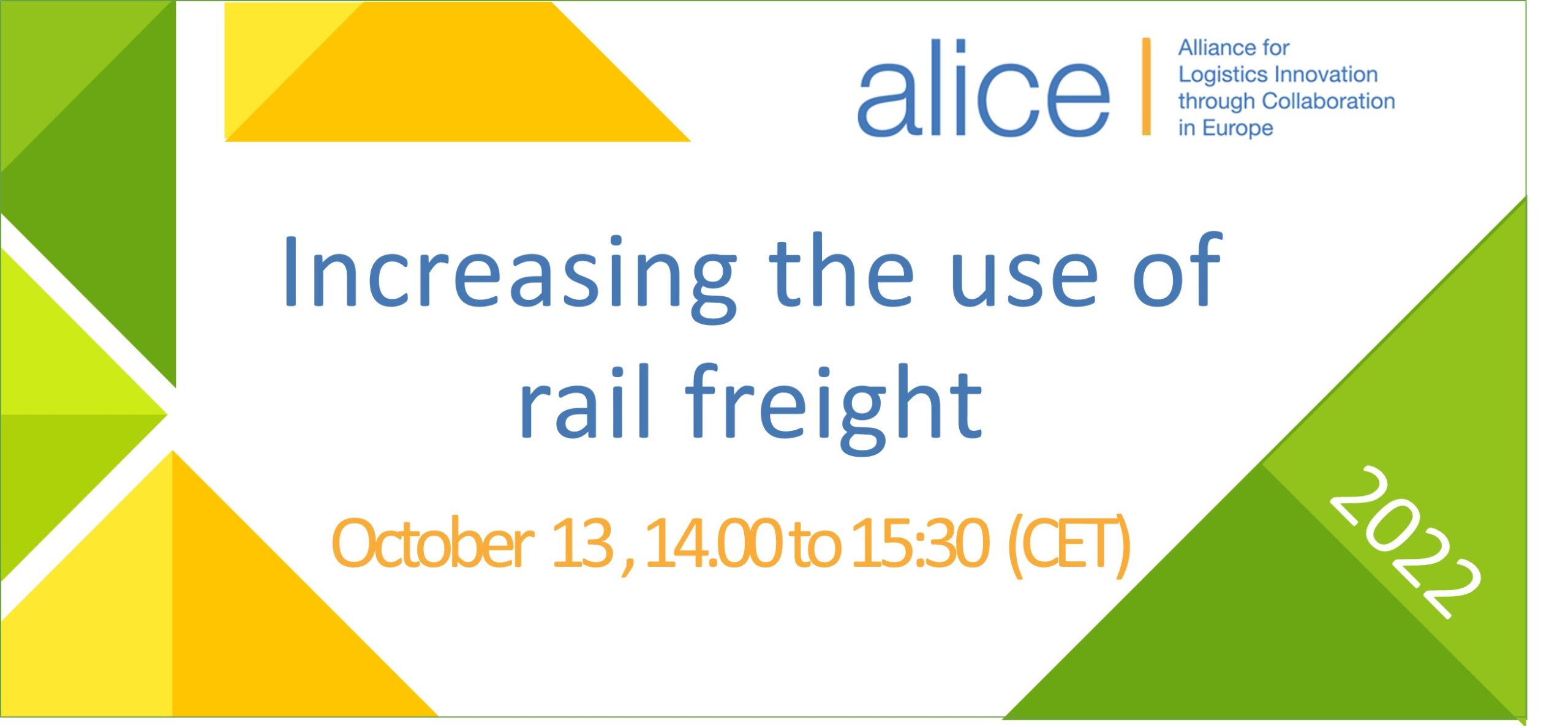Tuesday, September 6th, 2022

The ALICE Thematic Group Global Supply Network Coordination & Collaboration organized the online Workshop: Increasing the use of rail freight!
Increasing the use of rail to transport freight has obvious benefits in terms of reduction of carbon footprint and congestion on roads. The European Commission has set the objective to increase the rail freight traffic by 50% until 2030 and double it until 2050 compared to 2015.
Despite the benefits and support to increase performance of rail, this mode still appears to be unable to attract flows consistently and increase traffic. Rail is often seen as a complex part of the transport system for most logistics companies and shippers that rely mostly on road for transportation.
Several questions need to be addressed in order to achieve the European objectives and making rail the backbone for freight transport decarbonization:
This workshop highlighted pathways to improve the use of intermodal rail solutions, through clear feedback and views from 3 different stakeholder groups in the supply chain and discuss the outcomes together:
14:00 Introduction to the purpose of this workshop, by Serge Schamschula from Transporeon and ALICE Supply Network Coordination and Collaboration vice-chair.
14:05 EU goals, strategies, policies and supporting programmes to increase the use of rail freight, by Keir Fitch Head of Unit Rail Safety and Interoperability, European Commission, DG MOVE.
14:20 What is the perception of rail freight competitiveness from the different stakeholders?
The input collected through the registration to the workshop will be shared aiming at identifying the views on rail freight from the different stakeholders group as well as which are the main criteria to define
14:40 Round table discussion. Feedback to the results of the survey from the stakeholders.
15:10 Conclusion and next steps
The different parties from the railway sector, the LSPs as well as the shippers have been asked in parallel how they rate the competitiveness of rail and intermodal freight compared to road transport. Our goal was to determine the areas where the perception was deviating most, among shippers and the railway sector in particular. Additionally, we checked which were the primary criteria to determine competitiveness.
Over-all, the perception of competitiveness of rail is very different for the rail sector than for the shippers.
Competitiveness road vs rail:
Primary criteria to determine competitiveness of road and rail transport are:
Competitiveness criteria with most difference in perception between rail and shippers that we will further explore
4 small working groups will work over 2023 to exchange and conclude on the reasons behind this important difference on perception on those competitiveness criteria. Working Groups will include shippers, rail sector or LSPs practitioners.
For more information contact Serge Schamschula serge.schamschula@transporeon.com and Fernando Liesa fliesa@etp-alice.eu.